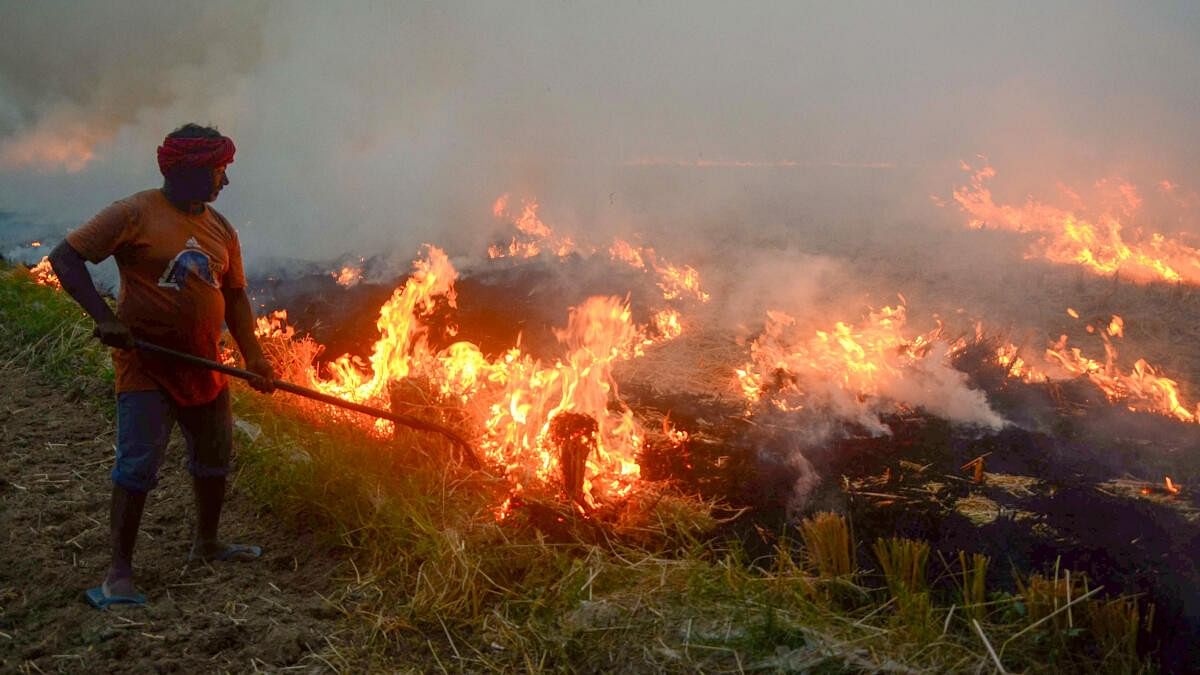
Stubble burning representative image
Credit: PTI File Photo
New Delhi: Denouncing the action plan submitted by the Punjab government for preventing stubble burning, the National Green Tribunal has sought an amended plan.
The tribunal while hearing a matter last week regarding stubble burning in Punjab, suggested inclusion of various new components in the fresh plan.
Periodical analysis of air quality at appropriate intervals should be undertaken in identified areas, especially during the harvesting seasons and post-harvesting," the tribunal said, adding, "An adequate number of ambient air quality monitoring stations should be installed at suitable locations, especially at the hotspots."
Earlier in November last year, the tribunal had directed the Punjab government to prepare and submit a time-bound action plan, disclosing phase-wise proposed action from January to September 2024, including steps to prevent stubble burning, and details of authorities responsible for the plan's implementation.
Noting shortcomings in the submitted plan, a bench of NGT Chairperson Justice Prakash Shrivastava said, "We find that the action plan is more or less an expression of routine exercise... Component of the action plan lacking in a definitive time schedule."
In the order passed on January 19, the bench denounced the report for not having "proper linkages".
"Unless area or block-by-block monitoring is done, it will be difficult to keep fire incidences under control," said the bench, also comprising judicial member Justice Sudhir Agarwal and expert member A Senthil Vel.
The green tribunal underlined that the main reason behind stubble burning is the "very small window" the farmers get between reaping the harvest and sowing.
"There is an immediate requirement to handle the stubble and its removal at the earliest so that the farmers do not resort to stubble burning for cleaning the field," the bench said.
The tribunal suggested the Punjab government to include several components in the new plan, such as assessment of the agriculture area and the extent of cultivation undertaken by the farmers between August and September each year, mechanical removal of stubble, stubble processing, monitoring and surveillance, identifying hotspots and taking immediate remedial action on farm fires.
These components should have a time frame, besides being backed with budgetary support, it said while underlining that the state government should comply with the issues noted by the tribunal.
"Let a fresh action taken report be filed along with an amended action plan at least one week before the next date of hearing," the tribunal said.
The bench posted the matter for next hearing on March 22.
Stubble burning in Punjab and Haryana is considered one of the major contributors in aggravating the problem of air pollution in the Delhi-National Capital Territory (NCT) area every winter.